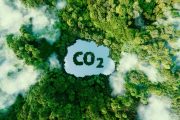Claims are made continually by the self-styled “environmentalist” movement that to “protect” the environment and the air, bigger and more centralized government must continue to attack free markets and the productive sector of the economy. Now, however, a new study by the Fraser Institute, a non-partisan Canadian think-tank, revealed that the opposite is actually true.
The findings, which confirm vast amounts of evidence showing that economic freedom is the best way to preserve and protect the environment, are bad news for the increasingly unfree United States. In recent years, much of the world has been steadily moving toward greater levels of economic liberty — strong private-property rights, free markets, transparency, small government, low taxes, freedom from corruption, and more. Under the administrations of George W. Bush and Barack Obama, however, the U.S. economy has been steadily falling behind, dropping like a rock in the rankings.
The powerful new research, strategically released on “Earth Day,” shows that countries where governments allow greater levels of economic freedom also have lower concentrations of “fine particulate matter” (PM10) air pollution. The converse is also true: Nations with less economic freedom and more state control over the economy have more dangerous air pollution. The study, entitled “Economic Freedom and Air Quality,” examined the relationship in over 100 countries between pollution and levels of economic freedom as ranked by the Fraser Institute’s respected Economic Freedom of the World Index.
Using data spanning over a decade, from 2000 to 2010, Fraser Institute researchers found that in the final year examined, the 20 freest nations economically had pollution levels that were almost 40 percent below the 20 most economically oppressed countries. Controlling for factors like national income, political institutions, and more, the study also found that an increase of just one point on the economic freedom index was associated with a more than a seven-percent average reduction in pollution concentrations.
“The level of economic freedom in a country affects the ability of citizens to produce and sell in the marketplace, and own private property,” explained Joel Wood, associate director of the Centre for Environmental Studies at the Fraser Institute and a co-author of the new study. “It’s a simple concept that drives prosperity and ultimately benefits the environment.” So, while virtually every economist acknowledges that freer economies produce widespread prosperity, it turns out that freedom also leads to a better environment.
The Fraser Institute uses widely accepted indicators such as size of government, tax burden, security of property, soundness of currency, international trade, regulatory regimes, and more to come up with its respected annual rankings. According to its latest index, the 10 most economically free nations include Hong Kong, Singapore, New Zealand, Switzerland, the United Arab Emirates, Mauritius, Finland, Bahrain, Canada, and Australia. The United States came in at number 17.
The countries with the least economic freedom, meanwhile, include those ruled by socialist strongmen, such as Zimbabwe and Venezuela — also among the poorest in the world. The most oppressive — Communist Cuba and North Korea, for example — were not ranked as part of the Index, which now includes over 150 nations. In addition to the brutal political repression, crumbling economies, ballooning poverty, and crushing shortages even of basic goods, the nations at the bottom of the scale are also becoming increasingly polluted. Seeing the data plotted on a graph tells a remarkable story, too.
“Anyone interested in the environment, be they policy makers, activists or ordinary citizens, should understand that people who live in the world’s freest countries generally breathe cleaner air than people in countries with less economic freedom,” Wood continued in an e-mailed statement about the new study. “Economic freedom, founded on individual property rights, rule of law, and free markets, is vital to sustainable development in Canada and around the world.”
According to Wood and other experts in the field, economic freedom improves air quality by protecting private-property rights, ensuring the rule of law, and limiting the size of government. “While property rights incentivize people to protect their investments, they also provide protection from polluters,” Wood said. “If you own land or a home that’s being damaged by pollution, you’re better able to negotiate with the polluter, within a contract or in a courtroom, and mitigate or eliminate the effects of that pollution.”
On the other hand, Big Government regulatory regimes alter incentive structures and can interfere with the ability of citizens to act. As an example, the Fraser Institute cited an overly large government spawning bureaucratic inefficiency, influence by special interests, and even state-owned “companies” that are often immune from the consequences. The Communist Chinese regime, for instance, which operates numerous massive polluting “enterprises,” also presides over dangerous levels of air pollution in many of China’s cities.
While the facts are clear, the United Nations and many of its autocratic member regimes continue to push for less economic freedom — globally. Under various guises — poverty, the environment, animal species, “sustainability,” and more — the radical pseudo-environmentalists have essentially declared war on free markets and prosperity. The Obama administration, too, has been working to dismantle America’s economic liberties. Ironically, though, as the latest study shows, their alleged “solutions” will simply produce more of the problems they purport to fight against — and they probably know it.
Alex Newman is a correspondent for The New American, covering economics, education, environment, politics, and more. He can be reached at [email protected]. Follow him on Twitter @ALEXNEWMAN_JOU.
Related articles:
U.S. Economic Freedom Plummets to 18th Place Globally, Study Shows
A Convenient Book About the Environment
Study: Some Biofuels Release More Greenhouse Gases Than Gasoline
The Real Agenda Behind UN “Sustainability” Unmasked
Study: U.S. Economic Freedom Drops for Fourth Year
Study: As U.S. Drops Again, Swiss Economy Still Most Competitive
Switzerland Overtakes US as Most Competitive Economy
“Live Free or Die”: N.H. Ranked Freest State in Union
EPA Declares Human Breath (CO2) a Pollutant
EPA Blasted for Dangerous Human Experiments to Advance Agenda




